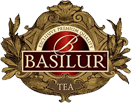Ceylon Tea grown in Nuwara Eliya

Probably the best-known of Sri Lanka’s tea-growing districts, Nuwara Eliya is also the most rugged and mountainous, with the highest average elevation. The air is cool and bracing; the winds are scented with eucalyptus and wild mint. Rainfall is moderate except during the dry season, which falls between February and April. Nights are cold and sometimes frosty. This unique climate, combined with the terrain peculiar to the region, produces a tea that is recognized by connoisseurs as among the finest – if not the finest – in the world. It is 1,868 m (6,128 ft) above sea level, under the shadow of Sri Lanka’s highest mountain, Pidurutalagala. It was generally acknowledged to produce some of the finest teas in the world. Nuwara Eliya tea enjoys two ‘quality seasons’, the eastern as well as the western. The infused leaf acquires a greenish-yellow tone, and the infusion in the cup is the palest among all the regional varieties of Ceylon Tea, with a subtle golden hue and a delicate yet fragrant bouquet.
Nuwara Eliya grown at high elevation at the very centre of Sri Lanka’s hill country, Nuwara Eliya tea enjoys two ‘quality seasons’, the eastern as well as the western. The balance between the two climatic systems varies from estate to estate, and a short drive from one location to another can see a complete change of weather. The tea produced here has a rarefied and refined quality that easily sets it apart from lower-grown varieties. High altitude and year-round low temperatures produce a very slow-growing bush with unusually small leaves that take on an orange hue – just a hint against the blackness – after withering. The infused leaf acquires a greenish-yellow tone, and the infusion in the cup is the palest among all the regional varieties of Ceylon Tea, with a subtle golden hue and a delicate yet fragrant bouquet.
As with all Ceylon Tea, Nuwara Eliya is available in several different grades. Excluding certain exotic varieties, the most sought-after is whole-leaf orange pekoe (OP); slightly less costly, though still expensive, is broken orange pekoe (BOP). Generally speaking, the smaller the leaf particle size, the stronger and less subtle the tea.




